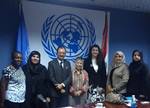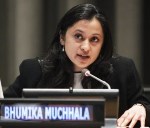Published on Wed, 2015-07-29 21:02
In response to President Benigno Aquino III’s last State of the Nation Address (SONA), Social Watch Philippines (SWP) lead convener Prof. Leonor Magtolis Briones said that the President has failed to fulfill his promises on the matter of social development and protection of the Constitution. According to Briones, based on the Millennium Development Goals target on poverty, the Philippines has not met its 17.2% poverty rate goal. As of the first semester of 2014, poverty incidence remains at 25.8% proving that despite the flagship poverty reduction programs of the government, poverty levels have remained virtually unchanged. It is claimed that the Philippines’ gross domestic product (GDP) has improved, however the GDP goals for 2015 may not be attained. GDP growth does not guarantee that the majority of the Filipinos have felt this economic progress. She stressed that, “Many Filipinos still consider themselves poor and hungry. Claims of robust growth can only be substantiated if they benefit from it. |
Published on Sun, 2015-07-26 00:00
On July 16th, governments adopted the Outcome of the Third Conference on Financing for Development, held in Addis Ababa (Ethiopia), called the “Action Ababa Action Agenda” (AAAA or the “Outcome”). The broad-based disappointment of civil society with an outcome document that has very little to welcome was evident in statement after statement, including the collective one issued by the hundreds of CSOs in the Financing for Development Group. A number of process failures – that some delegates confessed to have never seen in a UN process before — converged to reach the poor outcome. |
Published on Fri, 2015-07-24 10:05
Iraqi civil society organizations and women activists, demand support through the work of the UNAMI and the United Nations family. CSOs present a number of proposals for consideration during the upcoming discussions of the UN Security Council on the renewal of the mandate for the United Nations Assistance Mission for Iraq (UNAMI). Given the current security situation which has continued to deteriorate due to the conflict with ISIL, which is threatening also the security of the whole MENA region and the global security, we are particularly concerned about the situation of women and children, especially those living in areas under military operations and the huge number of IDPs exceeding 4 million. Plus, CSOs are concerned about the gross violation of Human Rights. Reports of sexual violence against women and girls continue to be received and boys continue to radicalized and recruited as terrorist fighters. |
Published on Thu, 2015-07-23 19:47
Climate change is costing us dear. Unless we rein it in, there will be more failed harvests, flooding in low-lying coastal areas, disease, mass migration and armed conflict over resources. Stopping it also comes at a price. It would mean completely switching energy generation, industrial production and transport systems to renewable energy sources – which is what the concept of climate protection means. Moderate estimates are that as of the year 2020, US$200 billion will have to be invested every year in emerging and developing countries. In addition, 50 billion would need to be invested annually in adaptation to climate change. This would include coastal protection systems for coping with rising sea levels, altering water courses or resettling communities in the countries affected, to mention but a few points. |
Published on Thu, 2015-07-23 19:21
The third Financing for Development (FfD) conference in Addis Ababa concluded last Thursday, July 16, in bad faith as developed countries rejected a proposal for a global tax body and dismissed developing countries’ compromise proposal to strengthen the existing U.N. committee of tax experts. Usually, when large conferences end after conflicts and climax in intergovernmental negotiations, there is a sense of exhilaration. This did not happen in Addis Ababa. |
SUSCRIBE TO OUR NEWSLETTER







